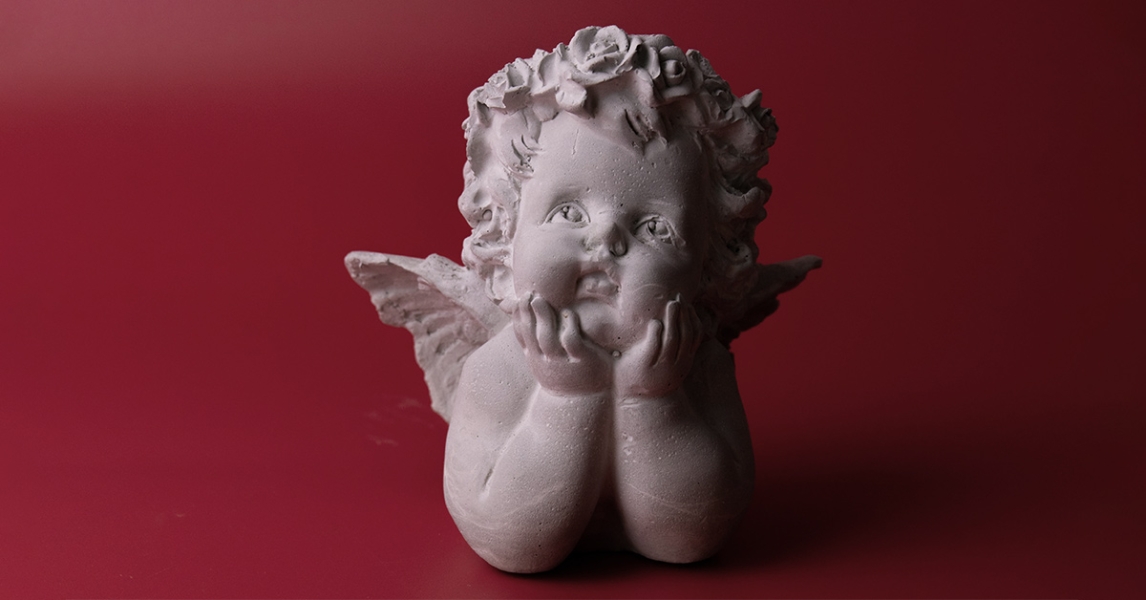Investor affections are proving fickle. But our multi-asset portfolios manager Will McIntosh-Whyte argues that in love and markets, it’s the things that last that really matter.

It’s the economy, Cupid!
Cupid is perhaps the embodiment of Valentine’s Day. The Romans stole him from Greek mythology, which knew him as Eros, the god of love. Eros had the magic bow we all know about, firing golden arrows which made his targets fall in love. What is perhaps less well known is that Eros was the son of Chaos, and he was an inherently mischievous immortal. That smile on his chubby little naked face more sinister than saintly. He enjoyed playing with people’s emotions, and he also had leaden arrows in his quiver to sow aversion.
Since late last year Jerome ‘Eros’ Powell, the Chair of the US Federal Reserve (Fed), has been firing emotional arrows thick and fast. Golden ones for value investors and leaden ones into the heart of growth investors. Those ‘growth’ companies flying closest to the sun (yes, I’m mixing my mythology) started to fall first towards the end of last year. Businesses banking on rapid sales growth, often with little to no profits and unproven business models, found their wings melting rapidly. This year that pain has melted into the more proven stocks because of concerns that prolonged, stubborn inflation pressures will mean more rate hikes than expected to bring it under control. Throw in some geopolitical uncertainty driving oil towards $100 and it makes for some serious heartache.
Falling out of love
The change in the market’s affections has been both palpable and measurable. Many investors who once slept soundly through the night are left lying awake in the wee hours, and gauges of investor sentiment are back to levels not seen since before the vaccine became a reality. Normally this is a reasonable indicator that markets are oversold, yet investors have been wary of stepping in. Valuations have had a reality check, and some investors are waking up to the fact that it may take years for their stocks to get back to last year’s levels – if at all.
Certainly, given the new-found aversion to growth stocks under a rising-rate regime, for many years to come we may not see the ‘eye-watering’ price-earnings multiples referred to in the ‘Wheel of fortune’ episode of our podcast The Sharpe End. However, those companies operating in genuine structural growth markets, which are able to raise prices and maintain margins even under difficult economic conditions should be able to recoup those share price losses through earnings growth.
Proven winners such as Amazon, Alphabet and Visa, all of which we own in our funds, have already managed to recoup much of their year-to-date losses by demonstrating robust earnings. And we expect many of our companies operating in growth markets to follow suit over time. It’s also important to remember that despite some of the pain felt this year, valuations are still not necessarily cheap. If economic growth remains strong and inflation stubborn, yields may well continue to rise in expectation of more central bank action – pressuring growth valuations further. In the meantime, quality growth companies that disappoint on profits or sales growth are being punished – with the likes of PayPal and Netflix (which we don’t own) seeing falls of over 20% on earnings days.
In this market environment, we have emphasised balance in our portfolios between growth and more cyclical names. Some exposure to those golden arrows to protect against the current volatility in markets, particularly affecting those growthier names we continue to prefer for the long term. We have built positions in areas such as industrials and financials which are more sensitive to economic cycles, and hence can provide protection in a rising-rate environment. However, we are wary of chasing ‘value’ companies that may benefit greatly from an accelerating economy in the short term yet have serious long-term problems with their businesses. The strength of the economy is vital to these value companies, and any fears about its underlying strength could spell sorrow for them. Equally, inflationary pressures are very real right now, with swathes of companies highlighting squeezed margins on earnings calls. Businesses that fail to pass on increased costs to their customers and/or cut costs to protect their profit margins are finding their share prices falling faster than a leaden arrow from the heavens.
For our part, we are confident the US economy can continue to grow through measured rate hikes (although if the Fed moves too far too fast, it could unsettle investors and weigh on the economy). But we’re less sanguine about the UK where a desperate Bank of England Governor, Andrew ‘Chaos’ Bailey, begs workers for wage restraint when they face an unprecedented rise in their cost of living. And with the price of roses doubling from last year (Dutch growers are paying much more to heat their greenhouses), I for one will be tightening my belt this Valentine’s Day. I’m hoping Emma doesn’t notice the shrinkflation when she only gets six roses this year.
Tune in to The Sharpe End — a multi-asset investing podcast from Rathbones. You can listen here or wherever you get your podcasts. New episodes monthly.

